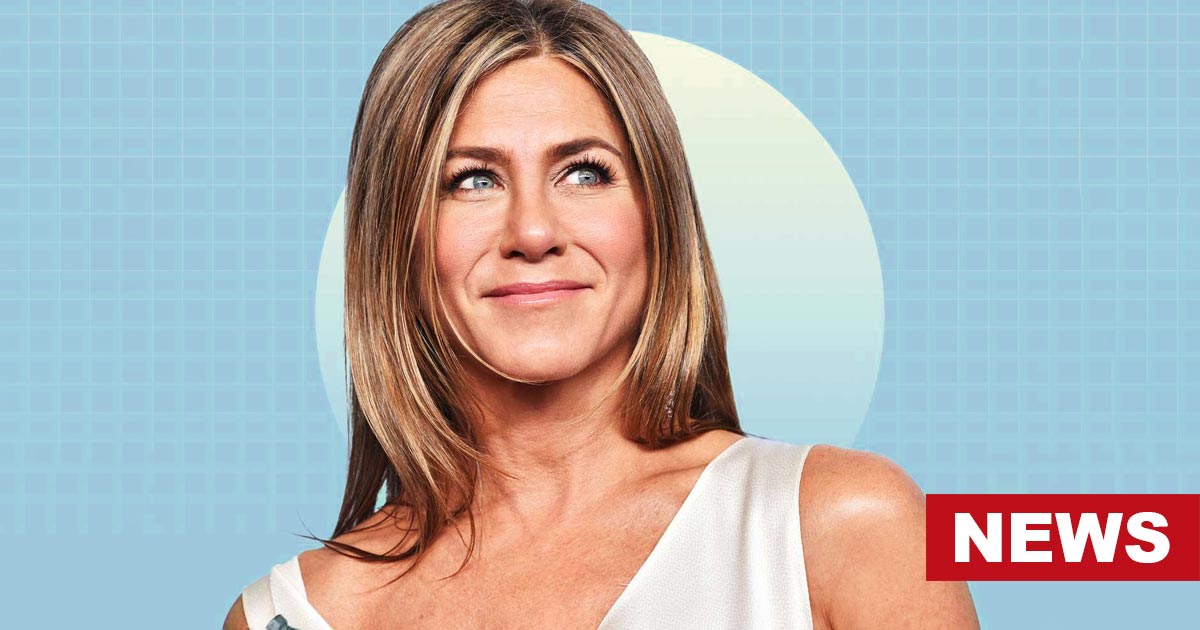Actress Jennifer Aniston of FRIENDS fame has always been known for her youthfulness. Out of all the cast members of the now-iconic comedy, she had the most prominent and successful career graph, as well as decades-old affection from the audience.
Aniston is also outspoken when it comes to serious issues faced by women like infertility and depression. Recently, getting real about turning 50 in Hollywood, Jennifer Aniston discussed aging on Instagram.
In a recent Instagram reel, Aniston made an appearance to promote a hair care mask from her brand LolaVie. While casually addressing the camera in her activewear and showcasing the product, observant fans couldn’t help but notice a small area of gray hair at the front, contrasting with her overall honey-colored locks.
In another Instagram post, she discussed her partnership with Pvolve, a well-known functional fitness company, and her evolving perspective on aging and exercise.
The actress was introduced to the brand in 2021 by a friend after experiencing a severe back injury from an intense workout. This injury prompted her to reevaluate her approach to fitness in accordance with her advancing years. She elaborated on the experience in a candid interview with Vogue.
The actress revealed how her attitude towards working out has transformed over the years. She acknowledged the need to retrain her mindset, moving away from the youthful high-impact, cardio-centric routine that caused stress and burnout.
Jennifer emphasized the importance of not pushing one’s body to the extreme and expressed her frustration with society’s habit of complimenting people by saying they look good “for their age”.
She said: “It drives me bananas, I can’t stand it. That’s a habit of society that we have these markers like, ‘Well, you’re at that stage, so for your age… I don’t even understand what it means. I’m in better shape than I was in my 20s. I feel better in mind, body, and spirit. It’s all 100 percent better.”
While many praised her for displaying her age-appropriate grays and talking about the mind-body connection in aging, others have raised concerns about the limited portrayal and representation of celebrity women embracing their age.
Aniston’s posts have saturated social media with the aging-friendly hashtags of ‘grombre’, ‘silversisters,’ and ‘ditchthedye’ but critics are apprehensive about a movement that temporarily pushes women towards embracing the physical and mental signs of aging in midlife based on a celebrity trend.
Laura Jackel, writing for MamaMia!, drew a parallel between the Kardashians’ perpetration of harmful beauty standards and how Jennifer Aniston discussed aging. People taking to the trend have completely sidelined the fact that wealthy Hollywood celebrities like Aniston avail the resourceful advantage of working with professionals to carefully curate signs of aging while maintaining a youthful appearance.
The media often showcases actresses like her with flawless abs and an age-defying face on magazine covers, thereby perpetuating a public image that is largely undefined by the mental and physical challenges, prejudice, and restraints of midlife.
Jackel elaborated on her op-ed: “But as an aging woman in my mid-40s who still dyes my hair, how am I supposed to feel about these mixed messages around growing older? Do I feel relief that Jennifer Aniston has finally shown us something real and ‘refreshing’ with her gray hair? Do I celebrate her authenticity or feel depressed that the bar is so low that these are the crumbs I have to celebrate? I don’t believe that wanting to look good or stay healthy as we age is bad, and I believe the focus needs to shift from less about how we look to how we feel in midlife.”
This influence of Hollywood’s depiction of women undoubtedly trickles down to affect ordinary individuals who face the realities of aging without the concocted image and means of youthfulness.
It makes ordinary aging women more vulnerable to anxiety and depression as they age in a way that doesn’t meet Aniston’s realities as well as belie their notions and expectations. The very fear that they are not “aging like fine wine” or that they will “look their age” exacerbates existing physical and mental health symptoms.
Therefore, it’s important to remember that there are countless ways to navigate life beyond the age of 50, without the dictates of Hollywood realities. Whether one chooses to embrace the gray or opt for alternative options, the decision ultimately lies with the individual. The ultimate aim should be to approach aging healthily, on one’s own terms, and with comfort.

























